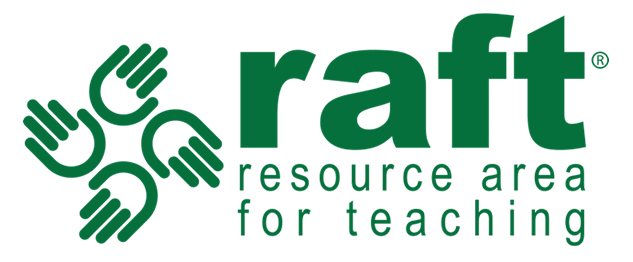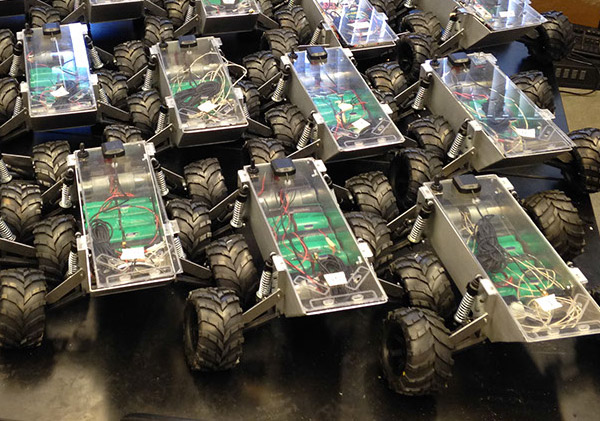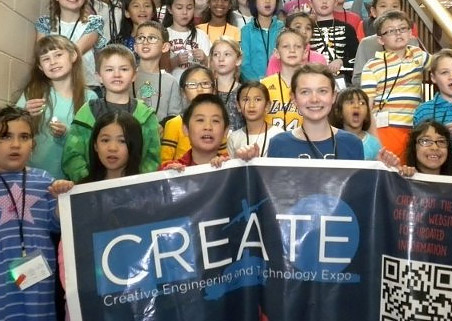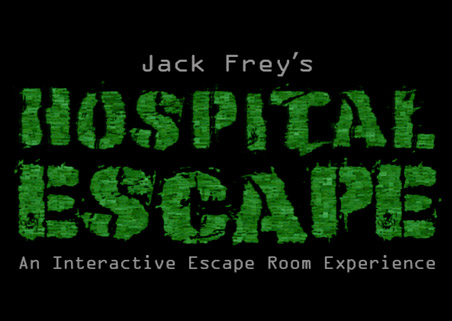Featured Story
Rethinking Recycling: Getting STEM ‘Stuff’ into Teachers’ Hands

Have you ever gone dumpster diving for project materials? Stephanie Welsh has earned her nickname, “Dumpster Diving Diva,” a hundred times over. RAFT Colorado’s executive director even has a favorite dumpster at a plastics company where she finds corrugated circle punchouts that can become anything from planets in model solar systems to wheels for toy cars.
“Anything that can be a wheel is fantastic,” Welsh beams. “In order to make materials affordable, we need to find sources that are affordable. Usually we try to intercept so we get materials before they hit the dumpster...it keeps us cleaner and doesn’t smell so bad.”
The Resource Area for Teachers (RAFT) has successfully intercepted the “trash” of 116 companies in the region, including SparkFun Electronics, headquartered in Boulder. SparkFun has been donating materials to RAFT since a few years after the nonprofit expanded to Colorado from its headquarters in San Jose, California.
More Stories
The University of New Hampshire Extra Terrestrial Navigation Swarm (UNH ET-NavSwarm)
A team of mechanical, electrical and software engineering students at the University of New Hampshire, Durham, is taking a cue from nature and designing a swarm of fully autonomous all-terrain robots for the mission of space exploration. The robots will be programmed with NavSwarm’s particle swarm optimization algorithm to search large areas of planets for water, natural resources and signs of life. Using an XBee module and a Raspberry Pi, the robots will communicate with one another, marking areas they travel and utilizing sensors.
SparkFun is donating Arduino Mega microcontroller boards to provide voltages and pulse width modulation for hexapod robots the UNH students are building from scratch. The aluminum chassis for 10 robots have been built, the suspension systems have been completed, and the 3D printed sensor housings were printed using the UNH student 3D printer. Now that the mechanical engineering team has set up the empty shells of the robots (motors, chassis, cover, etc.), the electrical engineering team has been able to begin placing electronics inside. The software engineering team is currently programing the bots to navigate autonomously, avoid obstacles and ultimately work together as a swarm to scour the terrain, taking in altitude measurements and then collaborating data.

School of Mines Tiny House
A student team at School of Mines in Golden, Colo., is designing and building a net-zero Tiny House using sustainable technology. Students majoring in engineering, physics and other areas of study have been building the ~200 square-foot house since summer 2016 on a 24'x8' trailer. Thanks to the generous support of community sponsors and donors, construction of the framing and exterior paneling is now complete. The next steps are installing the exterior metal sheathing, windows, HVAC, plumbing, interiors and a 1 kilowatt PV (photo-voltaic) system.
SparkFun is donating hardware and advising the students as they come up with a system of sensors that can maximize and monitor energy efficiency. The team aims to have the Tiny House completed to show at the 2017 Solar Decathlon in Denver this October. It will then become a learning lab through the Energy Minor at the School of Mines, allowing undergraduates the opportunity to monitor and adapt the house to increase its efficiency. It will also serve as a hands-on way to teach K–12 students and the community at large about renewable energy and easy ways to incorporate it into everyday life.
Everything Plus the Kitchen Sink:
The Tiny House team is now seeking donations to furnish the house with an energy-efficient refrigerator, an energy-efficient washing machine and a kitchen sink. Join us in supporting this sustainable effort!
Girls & Science
SparkFun has been a major sponsor of the Girls & Science event at the Denver Museum of Nature and Science since its inception. This year 25 organizations hosted Science Clubhouses, where girls could explore STEAM careers and have conversations with women working in these fields. We did our best to entertain and inspire, having conversations with kids and unveiling our newest interactive arcade game, the Button Bopper!
SparkFun also hosted a number of interactive exhibits, including a Bare Conductive Touch Board with electric paint images that light up and make sounds when you hover over them; a photo booth that sends your photo strip directly to Twitter; LilyPad crafts and fashion made with LEDs, microcontrollers and conductive thread; a Simon Says trampoline; a paper circuit robot pin; and an Intel® Edison robot that follows all things yellow.
We are proud to sponsor this annual event in an effort to bridge the gender gap in STEAM careers by sharing our passion for electronics, engineering and computer science.
Other Partners
People's Choice Space Apps

SparkFun is proud to sponsor Space Apps NYC in its local NASA Space Apps Challenge hackathons April 28—30. Through this worldwide NASA Incubator Innovation program, grassroots organizers stage a weekend-long hackathon at local sites where teams collaborate with their fellow global citizens and utilize publicly available data to design innovative solutions for challenges posed by NASA, other governmental agencies, NGOs and a variety of institutions. Vote now for your favorite Space Apps projects!
CREATE: Creative Engineering and Technology Expo

Cherry Creek Schools in Denver, Colo., hosted its CREATE event on March 18. We were happy to donate the SparkFun Inventor’s Kit to help inspire and empower students of all ages who gathered for the event. High school students had the chance to mentor younger students and take on leadership roles with projects and activities related to science, technology, engineering, art and math.
Jack Frey’s Hospital Escape

Jack Frey, a senior Interactive Multimedia major at the College of New Jersey, sent us a senior thesis project we couldn’t resist sponsoring. Hospital Escape is an interactive escape room experience that involves physical computing puzzles, wearable technology and a custom mobile app. We donated a particle photon and other hardware to help make Jack’s escape room a digital learning experience. “I think it would be awesome if people left my escape room having learned about new forms of technology that they can then explore and use to create their own projects," Jack writes. Stay tuned!

